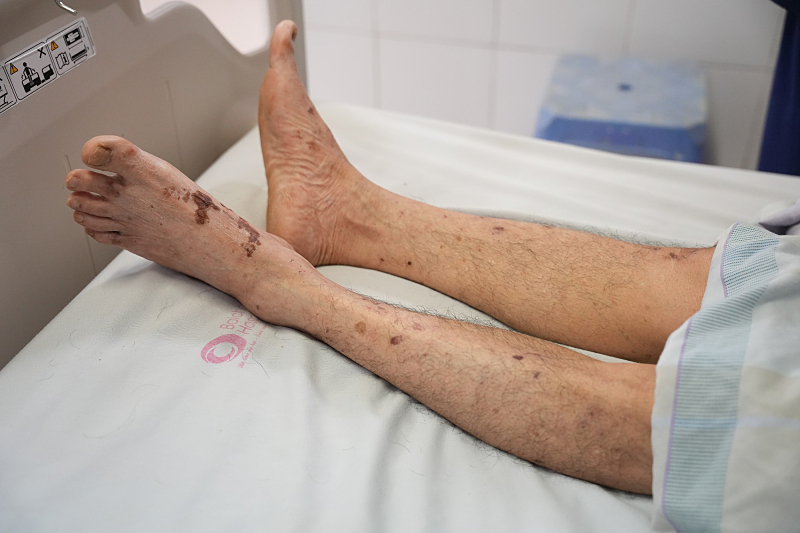On 21/8, Bai Chay Hospital reported that the patient was admitted with a high fever, severe fatigue, signs of infection, and dehydration. Ultrasound and CT scans revealed fluid buildup in the pleural cavity around both lungs and lung collapse.
Doctors diagnosed him with septic shock, sepsis, and pneumonia, compounded by hypertension. His prognosis was extremely poor.
The patient received intensive care treatment, including antibiotics, mechanical ventilation, continuous renal replacement therapy, intravenous fluids, and vasopressors. After seven days, he experienced headaches and reduced consciousness. A cerebrospinal fluid test confirmed streptococcus suis meningitis, and he received appropriate treatment.
The patient is now out of danger, his health is stable, and his infection markers have improved.
 |
The patient receiving treatment at the hospital. Photo: Hospital provided. |
Streptococcus suis is a zoonotic disease, meaning it is transmitted from animals to humans. There's no evidence of human-to-human transmission. Most cases involve slaughtering, consuming raw pig's blood (tiet canh), or undercooked pork dishes. Some individuals who haven't consumed raw pig's blood or slaughtered pigs have contracted the infection by eating raw or undercooked pork from infected animals or through skin abrasions during meat preparation.
Severe cases can rapidly progress to septic shock, circulatory failure, a drop in blood pressure, severe blood clotting disorders, a hemorrhagic rash across the body, embolism, multiple organ failure, coma, and death.
There is currently no vaccine against streptococcus suis for humans. Health authorities recommend consuming only thoroughly cooked pork and avoiding raw pig's blood and undercooked dishes. When preparing pork, use protective gloves to prevent infection, especially if you have cuts on your skin. If you experience symptoms such as high fever, headache, or nausea, seek immediate medical attention.
Thuy Quynh












